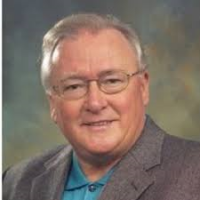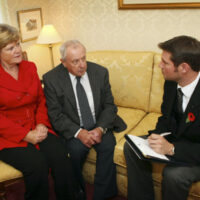First Steps and Registrations
Following a bereavement family and friends will be faced with many unfamiliar tasks. The first steps to be taken are often the hardest for people to make. At Jonathan Terry Funeral Directors we have experienced local staff on call 24 hours a day to answer the telephone personally and assist in moving your loved one from the place of death into our care and we are available at all times to deal with any questions, or to begin making the necessary funeral arrangements when required.
Procedure following an expected death:
In Hospital
The staff will advise you when and from where to collect the Medical Certificate of the Cause of Death. You will need this before you are able to register the death. Your loved one will normally remain at the hospital until all the necessary documents are completed and we will then convey them into our care.
At a Residential/Nursing Home
The staff at the home will inform you where you are able to collect the Medical Certificate of the Cause of Death from. This would usually be from the G.P. surgery but it may have been left at the home. You will need this before you are able to register the death. Once the doctor or qualified person has certified death the staff at the home will call us to convey your loved one into our care.
At Home
Please contact your GP, who will certify that death has taken place and if he or she is able, they will issue the Medical Certificate of the Cause of Death. Once the doctor has attended you will be able to request us to convey your loved one to our chapel of rest. This can be arranged at any time of the day or night by telephone. If the death has been referred to the Coroner please refer to the information in the Coroners section.
The Registrar’s Office
Most register offices now require you to make an appointment, by telephone or on line before attending.
YOU MUST NORMALLY REGISTER THE DEATH WITHIN 5 DAYS AT THE REGISTER OFFICE LOCAL TO THE PLACE OF DEATH.
Who can register a death
You can register the death if you’re:
- A relative or executor.
- Someone present at the death.
- An official from the hospital.
- The person making arrangements with the funeral directors.
Most deaths are registered by a relative. The Registrar would normally only allow other people if there are no relatives available.
Documents and information you will need
When registering a death, you’ll need to take the following:
- Medical Certificate of Cause of Death (signed by a doctor)
and if available:
- Birth Certificate.
- Marriage/Civil Partnership Certificates.
- N.H.S. Medical Card.
- Council Tax Bill.
- Driving licence.
- Passport.
- Proof of address (e.g. utility bill).
The Registrar will ask the following questions
- The person’s full name.
- Any names previously used, including maiden surname.
- The person’s date and place of birth (town and county if born in UK and country if born abroad).
- Their last address.
- Their last occupation.
- The full name, date of birth and occupation of a surviving spouse or civil partner.
- Whether they were receiving a state pension or any other state benefit.
Documents you will receive from the Registrar
If the Coroner is not involved the Registrar will issue you with:
- A Certificate for Burial or Cremation (known as the Green Form). This must be given to your funeral director as soon as possible to allow the funeral to take place.
- Certified copies of the Entry of Death (often called the Death Certificates). You will be able to buy one or more of the Death Certificates at this time. If there are any bank or building society accounts they will need an original certificate, as will any insurance and pension companies.
- The Registrar may also issue a Certificate of Registration or Notification of Death (form BD8) you may need to fill this out and return it if the deceased was getting state pension or benefits.
Tell Us Once
In the past informing individual government departments of a change in your circumstances such as bereavement might have taken a lot of time and effort.
Hampshire and Southampton Registration Services have launched a useful service for citizens called ‘Tell Us Once’.
The ‘Tell Us Once’ scheme means that when the Registrar collects details from you about the death, they can pass this information on to other agencies on your behalf.
This will help you to get benefits sorted out quickly, avoid the need to send copies of the Death Certificate by post to other organisations and to stop receiving mail from these agencies addressed to a deceased relative.
In order to use this service please supply the Registrar with the date of birth and national insurance number of the deceased, as well as details of any benefits, services, driving licence and passport number.
They will pass on the relevant information to:
Government Departments
- Department for Work and Pensions.
- HM Revenue and Customs (for tax, credits and benefits).
- Identity and Passport Service.
- Driver and Vehicle Licensing Agency.
- Minstry of Defence, Service Personnel and Veterans Agency (War Pensions Scheme).
Local Council Services
- Housing and council tax offices.
- Electoral services.
- Libraries.
- Children’s services.
- Blue Badge parking scheme.
- Adult Services.
- Bus Pass.
- Housing Benefit Office.
How to inform ‘Tell Us Once’
By telephone 0800 085 7308
Online www.gov.uk/after-a-death/organisations-you-need-to-contact-and-tell-us-once
We are available at all times to answer your questions regarding the registration of a death.







